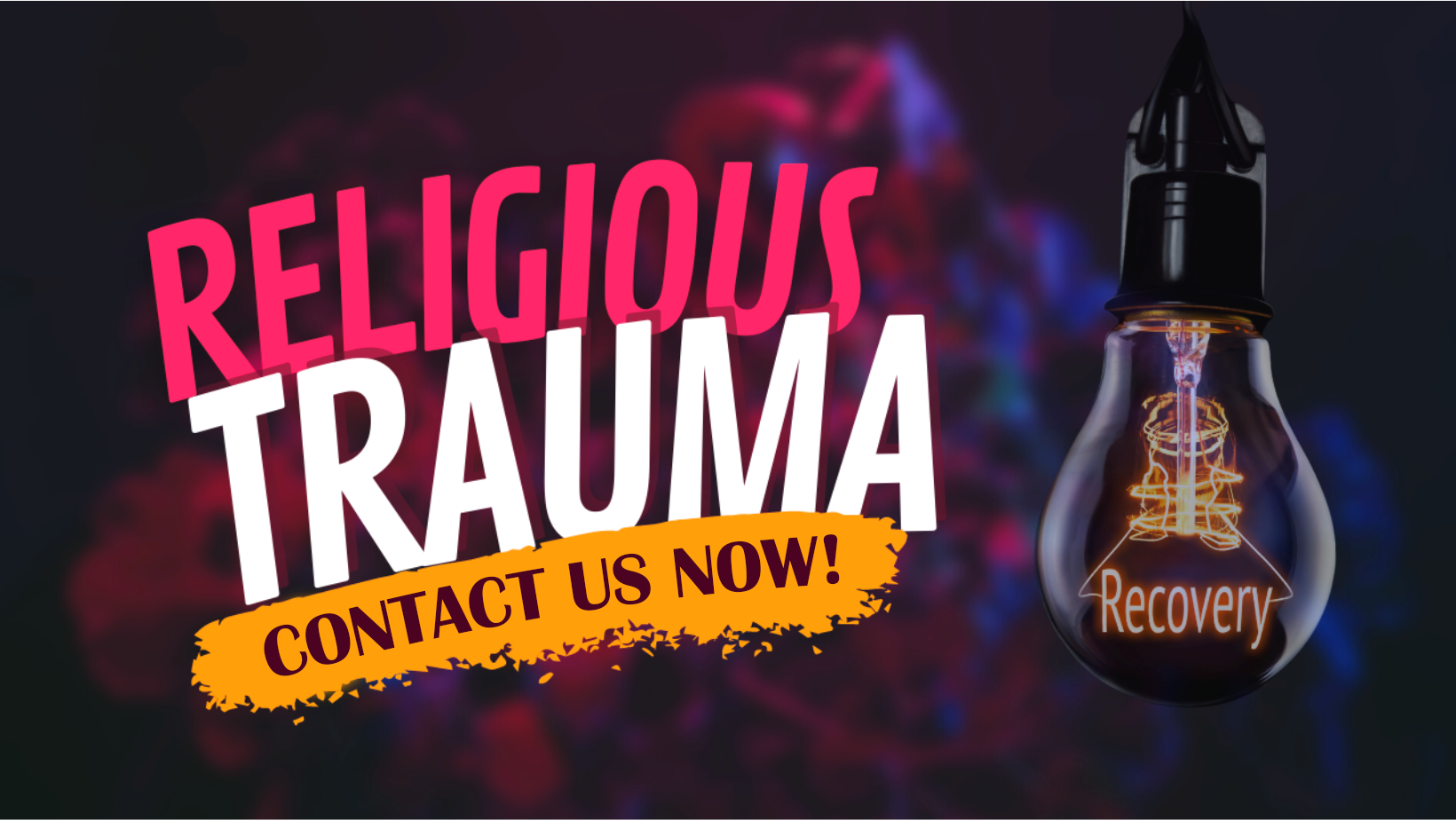
What is Religious Trauma?

Religious trauma results from an event, series of events, relationships, or circumstances within or connected to religious beliefs, practices, or structures that is experienced by an individual as overwhelming or disruptive and has lasting adverse effects on a person’s physical, mental, social, emotional, or spiritual well-being.
Slade, Darren M., Adrianna Smell, Elizabeth Wilson, and Rebekah Drumsta. "Percentage of U.S. Adults Suffering From Religious Trauma: A Sociological Study." Socio-Historical Examination of Religion and Ministry 5, no. 1 (2023): 1–28.
See Global Center for Religious Research at https://www.gcrr.org/religioustrauma
Religious Trauma can look like:
Deep or chronic shame about being personally responsible for Christ's death, being a sinner, or not living up to expectations.
Feelings of unworthiness, being unlovable, or being bad in some way
Fear of rejection by God or the faith community
Lack of self-compassion
Lack of personal autonomy - an engrained belief that one's life is for God's sole purpose, leading to challenges in making decisions, creating personal boundaries, and providing intentional consent.
Feeling that they can't trust themselves, their body, or their emotions.
Growing up with chronic fear or anxiety around salvation, rapture, Hell, Satan, or demons
Superstitious beliefs about what will lead to positive and negative outcomes in life.
Perfectionism or hypervigilance - fear of making mistakes.
Extreme dualistic thinking - judging every individual thought and action as "good" or "bad."
Spiritual bypassing - denying the presence and validity of mental health issues due to a belief that those feelings come from Satan or a lack of faith, and if they pray enough or are favored, then God will take it away.
Difficulty with experiencing pleasure
Feeling bad or wrong for having sexual thoughts or feelings, or having physical reactions to sexual situations such as crying or feeling a disconnection from the body
Denying sexuality
Lasting trauma from conversion therapy.
